Health, wellness, and nutrition have never been more topical than they are today, in a world struggling to suppress and survive a global pandemic. Trends in nutrition have historically reflected social challenges and priorities, so it’s no surprise that today’s top nutrition fads focus on immunity, sustainability, and mental health. Here’s a quick look at what’s trending:
Immunity Super Foods
As a result of the pandemic, increased focus has been placed on improving the immune system, so immunity boosting superfoods are trending. Immunity superfoods include those high in Vitamin C (citrus, broccoli, peppers, brussels sprouts) and Vitamin E (nuts, avocados, seeds), and Vitamin D (eggs, tuna, salmon, sardines). Antioxidant-rich foods are also outstanding immunity boosters, (green tea, berries, pecans, and kale). Studies show that diets rich in these foods positively impact the immune system. Nutrition affects the microbiome, gut function, inflammation, and blood cell function, all of which reduce disease risk, and positively impact the immune system.1 Conversely, a deficiency in vitamin D, zinc, and vitamin C can negatively affect immune response.
Fermented Foods and the Microbiome Diet
Kombucha, Kimchi, and Kefir are just three of the trending foods in this category, and if you haven’t already heard of them, you will. Fermented foods are rich in probiotics and emerging research suggests that the good bacteria found in these fermented foods may improve gut health by increasing the number of healthy bacteria and virtually, bathing your GI tract in healthy, food-related organisms, according to food scientist Robert Hutkins, PhD, a professor at the University of Nebraska-Lincoln.2 The estimated 100 trillion microorganisms that exist in the gut play an important role in health. This growing area of research will continue to investigate how these foods influence the immune system, and metabolism.
Alternative Proteins and Sustainable Diets
Consumer interest in alternative proteins, such as plant-based meats, soy, legumes, algae, and insects, such as crickets, is at an all-time high with many new products coming on the market. While meat has traditionally been the world’s primary protein, there is growing interest in alternative protein sources due to an increased focus on animal welfare, environmental concerns, and of course, health. Sustainable diets respect and protect the environment and its ecosystems, in addition to being accessible and healthy. Vegetarians and vegans have long understood that diets based on animal products, such as red meat, butter and dairy, are high in saturated fats, which are linked to obesity, heart disease, diabetes, and elevated LDL cholesterol levels. However, diets based on plant sources, whole grains, nuts and seeds can help prevent these chronic conditions. With the increasing demand for alternative proteins, consumers are likely to see rapid innovation in this emerging food category.
Foods that Support Mental Health
Diets containing antioxidants, zinc, magnesium, Omega 3s, and probiotics have been linked to mental well-being and may be the newest form of comfort food. The anti-inflammatory properties of Omega 3’s, which are essential fatty acids, lead to a healthy brain and reduce symptoms of anxiety. Since the body does not produce Omega 3 naturally, they are obtained through foods such as fish, seeds, flaxseeds, avocados, and olive oil. Stress-reducing compounds like adaptogens and cannabidiol are also becoming increasingly popular, and many food and beverage companies are introducing products containing these ingredients, as consumers search for solutions to reduce anxiety and improve sleep.
Authored by Zach Meeker, Research Assistant for Midwest Orthopaedics at Rush University Medical Center
References:
1 Venter, C., Eyerich, S., Sarin, T., & Klatt, K. C. (2020). Nutrition and the Immune System: A Complicated Tango. Nutrients, 12(3), 818. https://doi.org/10.3390/nu12030818
2 Robert Hutkins, PhD, professor of food science, University of Nebraska-Lincoln.
Click here for full podcast playlist.














